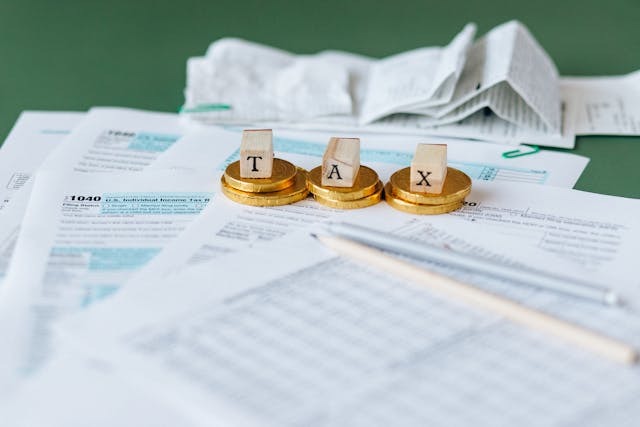Key Takeaways
Tax Savings Advantage: Depreciation allows landlords to legally reduce taxable income each year, improving cash flow and overall profitability.
Value vs. Market Reality: Even though depreciation lowers a property’s book value, market appreciation, especially in San Diego, can still increase real property value over time.
Plan for Recapture Taxes: Depreciation affects future taxes when selling a property, so landlords must plan ahead for depreciation recapture to avoid financial surprises.
Strategy Matters: Accurate records and professional guidance help landlords maximize depreciation benefits while staying IRS compliant.
Have you ever wondered how much your rental property might actually be worth years from now, or how depreciation could affect the long-term returns on your investment?
Many landlords find themselves focusing only on rental income without giving enough thought to how depreciation influences both taxes and property value over time. Understanding this balance is key to making smarter financial decisions that keep your investments profitable.
By learning how depreciation works, you not only protect your assets but also uncover opportunities to maximize returns. With the right guidance Penny Realty, Inc. for investors in San Diego, landlords can make informed choices that strengthen both current income and future property value.
Understanding Depreciation
Depreciation is one of the most valuable yet often overlooked aspects of owning rental property. In simple terms, it refers to the gradual wear and tear that reduces the value of your building over time.
For landlords in San Diego, this is not just about the physical aging of the property but also about the financial advantage it provides during tax season.
What It Is: The IRS allows you to deduct the cost of your rental property (excluding land) over a set number of years.
Why it Matters: These deductions reduce your taxable income, leaving more money in your pocket each year.
When it Applies: Depreciation starts once your property is ready for rent, even if residents haven’t moved in yet.

By grasping this concept, landlords can use depreciation to offset expenses and strengthen overall investment returns.
How Depreciation Impacts Property Value Over Time
Many landlords initially see depreciation as a tax tool, but its effect on property value is just as important.
Over the years, rental homes in San Diego naturally experience aging and usage, which lowers their paper value in accounting terms. However, that does not mean your actual market value declines in the same way.
Book Value Vs. Market Value: Depreciation reduces your property’s taxable value, but San Diego’s strong demand and limited housing supply often push market prices upward.
Impact on Resale: When you eventually sell, depreciation can lead to “recapture taxes,” which need to be factored into your long-term planning.
Balancing Both Sides: While depreciation lowers taxable income today, understanding its future impact helps you avoid surprises when it’s time to sell.
Landlords who stay aware of these details position themselves to make informed financial moves rather than reacting at the last minute.
Tax Benefits of Depreciation for Rental Property Owners
One of the biggest advantages of depreciation for San Diego landlords lies in its tax savings. By allowing you to spread out the cost of your property over several years, the IRS gives you a legal way to lower taxable income without reducing your actual rental earnings.
Annual Deductions: Each year, a portion of your property’s value can be deducted as a depreciation expense.
Offsetting Income: These deductions help balance rental income, reducing what you owe in taxes.
Expenses Included: Items like roofs, appliances, and HVAC systems can also be depreciated, giving landlords multiple avenues for savings.

By factoring in these benefits, landlords can significantly improve their cash flow while maintaining long-term investment stability.
The key is keeping accurate records and understanding which property components qualify, so you don’t miss opportunities that could put extra dollars back into your pocket.
Key Factors That Influence Depreciation in San Diego Rentals
Not every rental property depreciates in the same way. The rate and impact often depend on specific factors that landlords should monitor closely.
Property Age: Older buildings naturally depreciate faster since systems and structures wear down.
Type of Materials: Durable materials may slow depreciation, while cheaper finishes require more frequent replacement.
Location Within San Diego: Coastal homes face salt air and humidity, while inland rentals might deal with heat-related wear.
Upgrades and Renovations: Improvements can reset depreciation schedules on certain components.
By keeping an eye on these elements, landlords can better predict how their property will depreciate and plan for reinvestments that maintain value while taking advantage of tax deductions.
Balancing Depreciation with Appreciation in a Growing Market
San Diego is unique because even as properties depreciate on paper, the city’s real estate market often shows steady appreciation.
For landlords, this creates both opportunity and complexity.
Depreciation Benefit: You reduce taxable income each year, improving short-term cash flow.
Appreciation Upside: Market demand increases property value, creating strong equity growth.
The Balance: Smart landlords use depreciation to their tax advantage while relying on appreciation to build long-term wealth.

Understanding how both forces interact helps you see the bigger picture. Your property may look less valuable on tax records, but in reality, the San Diego market often rewards you with significant appreciation when it’s time to sell.
Common Mistakes to Avoid
While depreciation offers clear benefits, missteps can cost landlords money. Here are common mistakes to avoid:
Not Claiming Depreciation: Some landlords fail to take deductions altogether, missing valuable tax savings.
Inaccurate Records: Poor documentation of improvements or component replacements can lead to under-claimed benefits.
Ignoring Recapture Rules: Selling without planning for depreciation recapture taxes can cause financial shocks.
DIY Miscalculations: Trying to calculate depreciation without proper guidance often leads to errors.
Avoiding these mistakes ensures landlords in San Diego get the most out of their investments while staying compliant with the IRS requirements.
Bottom Line
Depreciation isn’t just a tax rule, it’s a strategic financial tool that can boost cash flow, reduce taxable income, and strengthen long-term investment returns when managed correctly. But understanding its impact on resale value, recapture taxes, and reinvestment planning requires more than guesswork.
That’s where Penny Realty, Inc. comes in. We partner with San Diego landlords to simplify property ownership and provide guidance that protects your investment at every stage, from tax planning to value preservation and portfolio growth.
In short, when you leverage depreciation the right way, you’re not just saving money today, you’re building wealth for tomorrow. With the right strategy and expert support, your rental property becomes more than an asset, it becomes a long-term advantage.



